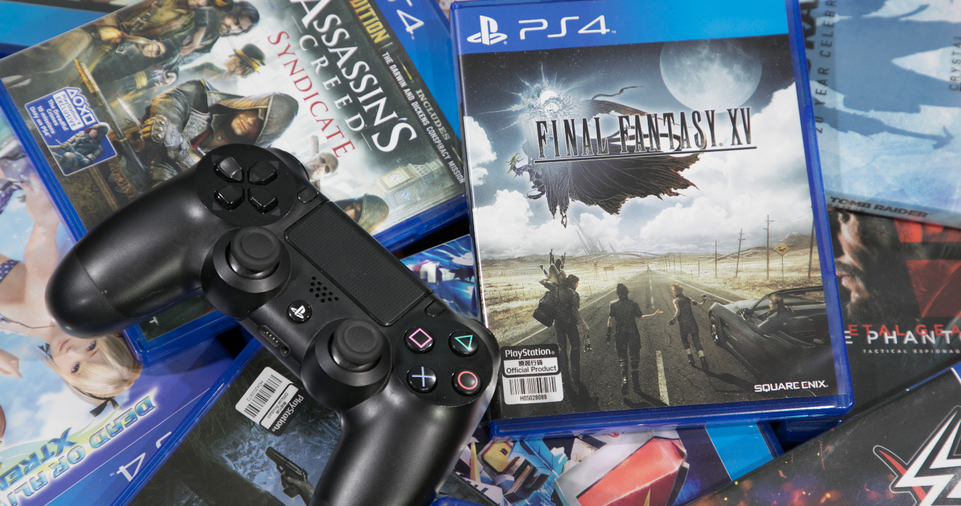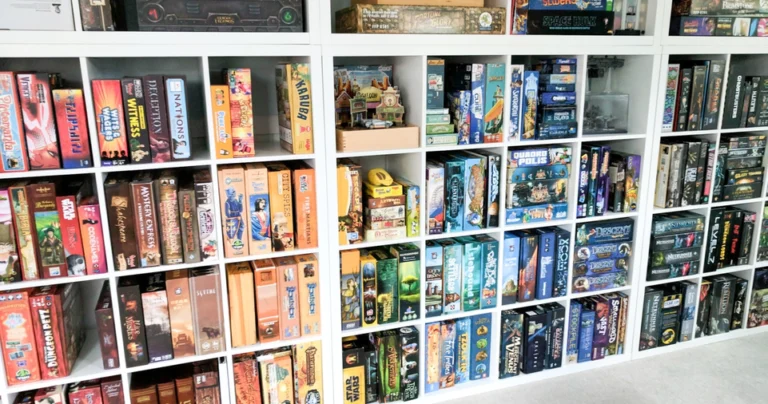If you’re an avid gamer, chances are your game collection has grown over the years, spanning multiple platforms and digital storefronts.
Keeping track of your purchases and organizing your game library can help you avoid duplicate buys, maximize your playtime, and keep your collection manageable.
However, with so many platforms, genres, and subscription services available, it can be challenging to maintain order.
In this guide, we’ll explore the best strategies to organize your game library, prevent clutter, and ensure you always know what games you own.
Additionally, we’ll cover how to maintain a wishlist, track sales, and even plan your gaming sessions efficiently.
Why Organizing Your Game Library Matters
- Prevents duplicate purchases – Knowing what you own avoids unnecessary spending.
- Maximizes playtime – Easily find and play games without searching through clutter.
- Enhances accessibility – Quickly locate your favorite titles on different platforms.
- Aids in backlog management – Helps you keep track of unplayed or unfinished games.
- Improves storage efficiency – Organizes both digital and physical collections efficiently.
- Streamlines multiplayer sessions – Quickly find and launch co-op or multiplayer games.
- Encourages completion – Keeps you accountable for finishing games before buying new ones.
- Simplifies game rotation – Helps you cycle through different games without forgetting unfinished ones.
- Tracks limited-time content – Ensures you don’t miss special events, DLC, or seasonal content.
ALSO READ:How to Handle Online Toxicity and Avoid Negative Interactions
Digital vs. Physical Organize Game Libraries

| Aspect | Digital Games | Physical Games |
|---|---|---|
| Storage | Stored in cloud or console storage | Requires shelf or storage space |
| Accessibility | Can be downloaded anytime | Must be manually retrieved and inserted |
| Durability | No risk of physical damage | Prone to wear and tear |
| Trade & Resale | Usually non-transferable | Can be sold or traded |
| Organization | Folders, tags, and filters available | Requires manual sorting |
| Cost Variability | Frequent digital sales and bundles | Retail and collector’s edition pricing can vary |
| Longevity | Dependent on servers | Can last as long as the disc remains intact |
| Subscription Access | Available on services like Game Pass | No subscription dependency |
Steps to Organize Your Game Library
Catalog Your Games
Start by making an inventory of all your games across platforms (PC, PlayStation, Xbox, Nintendo Switch, etc.). Use a spreadsheet or an app to record:
- Game title
- Platform
- Purchase date
- Status (Completed, In Progress, Backlog)
- Digital or Physical
- Genre or category
- Playtime (if available)
- Multiplayer or single-player designation
- Last played date
Use Game Library Management Tools
There are several apps available to help manage your collection:
- GG App – Tracks backlog, playtime, and wishlist.
- Backloggery – Helps manage unfinished games.
- HowLongToBeat – Estimates playtime for your backlog.
- RAWG – Comprehensive database for tracking games across multiple platforms.
- GameEye – Organizes physical game collections with barcode scanning.
- Playnite – Customizable launcher for managing PC game libraries.
- SteamGridDB – Helps customize digital game libraries visually.
Organize Physical Games Efficiently
- Store games alphabetically or by platform.
- Use labeled storage boxes or shelves.
- Keep collector’s editions or rare games in protective cases.
- Group similar genres together (RPGs, shooters, strategy, etc.).
- Use vertical stacking or book-style storage for space-saving.
- Maintain a cleaning schedule for dusting cases and discs.
Manage Digital Libraries
Most digital platforms (Steam, PlayStation, Xbox, Nintendo) offer built-in sorting tools:
- Create folders for genres or franchises.
- Tag games as “Completed,” “Unplayed,” or “Favorites.”
- Use wishlists and “Play Next” lists to prioritize your backlog.
- Archive or hide games you’re no longer playing to reduce clutter.
- Track subscription-based games before they leave services.
- Back up important game save files to cloud storage.
Track Game Updates and Expansions
- Set alerts for major updates or DLC releases.
- Enable notifications for free content additions to games.
- Monitor season passes and in-game purchases to prevent overspending.
- Keep track of patch notes to stay informed about bug fixes or new features.
ALSO READ:How to Find and Enjoy Free-to-Play Games Without Spending Money
Keeping Track of Purchases and Budgets

Set a Gaming Budget
Spending on games can quickly add up. Consider:
- Setting a monthly or yearly spending limit.
- Tracking purchases in a budget spreadsheet.
- Watching for sales and discounts before buying.
- Evaluating cost-per-hour value for longer games.
- Using gift cards or store credits strategically.
Track Subscription Services
With gaming subscriptions like Xbox Game Pass, PlayStation Plus, and Nintendo Switch Online, keeping track of what’s available helps you avoid unnecessary purchases. Check your active subscriptions and make note of expiring games. Maintain a list of titles included in services to avoid buying games you can access for free. Compare renewal costs to ensure you’re getting value from each service.
Leverage Game Deal Websites
Use resources like:
- IsThereAnyDeal – Finds the best prices across stores.
- CheapShark – Compares game prices for discounts.
- Humble Bundle – Offers discounted bundles and charity contributions.
- Fanatical – Provides heavily discounted PC game bundles.
- PSN & Steam Wishlist Alerts – Notifies you when wishlist games go on sale.
- Green Man Gaming – Regularly features exclusive digital discounts.
Sell or Trade Games You No Longer Play
- Use platforms like eBay, GameStop, or local game shops to sell physical games.
- Trade-in games for store credit towards new purchases.
- Donate older games to libraries or charity organizations.
- Join gaming forums or Facebook groups for direct trades with other gamers.
Organizing Multiplayer and Co-Op Games

For gamers who frequently play multiplayer titles:
- Maintain a separate list of online and multiplayer games.
- Track which friends own the same games for easier matchmaking.
- Keep a note of cross-play support for different platforms.
- Set reminders for seasonal events or time-limited multiplayer content.
- Join Discord servers dedicated to specific multiplayer games.
Maintaining an Efficient Gaming Experience
- Regularly declutter your library by archiving or uninstalling games you no longer play.
- Update spreadsheets or tracking apps monthly.
- Rotate between backlog and new releases to maintain variety.
- Periodically revisit older titles to ensure completion and value.
- Stay updated on industry trends to anticipate future gaming investments.
- Utilize parental controls to manage family gaming libraries.
Conclusion
Organizing your game library helps streamline your gaming experience, prevents unnecessary spending, and ensures you enjoy your collection to the fullest. Whether you prefer physical or digital games, using the right tools and strategies will make managing your library effortless. By tracking purchases, maintaining a backlog system, and leveraging sales, you can make the most out of your gaming budget while keeping your collection in check.
Call to Action
How do you organize your game library? Share your favorite tips in the comments, and don’t forget to explore game tracking apps to enhance your collection management! Start cataloging today to maximize your gaming experience!







